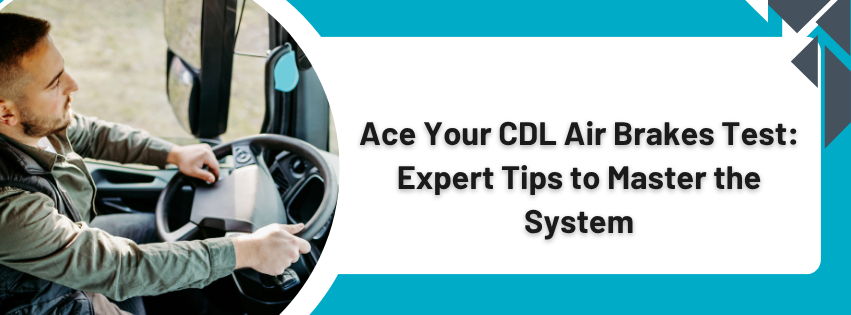Essential Health & Fitness Tips for Truck Drivers in Canada

For truck drivers in Canada, maintaining health and fitness on the road can be challenging. Long hours behind the wheel, irregular schedules, and limited access to nutritious food make it difficult to stay active. However, prioritizing health is crucial for alertness, stamina, and overall well-being.
At Trukademy, we understand the unique demands of the trucking profession and have compiled expert tips to help you stay fit while on the road.
Why Fitness is Important for Truck Drivers
Truck driving is a demanding profession that involves long hours of sitting, often under stressful conditions. Truck driver health and fitness are crucial for maintaining energy levels, ensuring safe driving, and preventing chronic illnesses. A healthy lifestyle for truck drivers can help combat common issues like obesity, diabetes, and cardiovascular diseases.
Regular exercise for truck drivers not only enhances physical health but also boosts mental well-being. Improved alertness and reaction times reduce the risk of accidents, while increased energy levels help truckers stay focused on long hauls. Additionally, maintaining good health reduces sick days, ensuring consistent work and financial stability. By prioritizing truck driver fitness, drivers can experience better job satisfaction and an improved quality of life.
Common Health Challenges Faced by Truck Drivers In Canada
Truckers face several health challenges, primarily due to a sedentary lifestyle and limited access to nutritious food. Prolonged sitting can cause poor circulation, muscle degeneration, and weight gain. Furthermore, unhealthy eating habits, such as relying on fast food, contribute to issues like high blood pressure and diabetes.
Another major concern is sleep deprivation. Irregular schedules and long hours often disrupt natural sleep patterns, leading to fatigue and impaired cognitive function. The high-stress nature of trucking also affects mental health, increasing the risk of anxiety and depression. To overcome these challenges, truckers need to incorporate healthy habits, regular exercise, and stress management techniques into their daily routines.
Healthy Eating Tips for Truck Drivers
Nutrition plays a key role in maintaining good health on the road. Truckers should focus on balanced meals that provide sustained energy and essential nutrients. Here are some healthy eating tips for truck drivers:
- Plan ahead: Preparing meals in advance prevents reliance on fast food and unhealthy snacks.
- Choose whole foods: Opt for lean proteins, whole grains, and fresh vegetables.
- Snack wisely: Keep fruits, nuts, yogurt, and protein bars handy.
- Control portions: Eating smaller, frequent meals helps maintain energy levels and prevents overeating.
By adopting these nutritional habits, truck drivers can sustain high energy levels and avoid chronic health issues.
Quick and Healthy Meal Prep Ideas
Meal prepping can help truck drivers maintain a healthy diet on the go. Here are some best meal prep ideas:
- Overnight oats: Mix oats, milk/yogurt, chia seeds, and fresh fruits for a quick, nutritious breakfast.
- Protein-packed wraps: Use whole grain wraps with lean meats, cheese, and veggies.
- Salads with protein: Include grilled chicken, beans, nuts, and healthy fats like avocado.
- Chili or stew: Cook in advance and store in portable containers for reheating.
- Healthy snacks: Pack hummus, cut-up vegetables, and trail mix for quick energy boosts.
With proper meal planning, truck drivers can avoid unhealthy roadside meals and stick to a nutritious diet.
Best Exercises for Truck Drivers
Truck drivers may find it challenging to stay active, but incorporating simple exercises can help. Here are some quick workouts for truck drivers:
- Squats: Strengthens legs and core, improves circulation.
- Lunges: Helps maintain lower body strength and flexibility.
- Push-ups: Strengthens arms, chest, and shoulders.
- Planks: Builds core strength and improves posture.
- Resistance band exercises: Great for strength training in a limited space.
Even short exercise breaks can significantly improve physical health for truck drivers, reducing stiffness and increasing energy.
Hydration Tips for Truck Drivers
Proper hydration is essential for energy levels and cognitive function. Dehydration can lead to fatigue, headaches, and poor focus, which can be dangerous for truckers. Here’s how to stay hydrated:
- Keep a large water bottle in the truck and sip regularly.
- Limit caffeine and sugary drinks that contribute to dehydration.
- Consume hydrating foods such as watermelon, cucumbers, and oranges to maintain proper hydration levels.
- Set hydration reminders to drink water consistently throughout the day.
By making hydration a priority, truck drivers can maintain peak performance on the road.
Stretching Routines for Truck Drivers
Sitting for long hours can cause muscle stiffness and poor circulation. A simple stretching routine can alleviate tension and improve flexibility. Try these stretches:
- Neck stretches: Relieves tension from prolonged driving.
- Shoulder rolls: Reduces upper body stiffness.
- Hamstring stretches: Improves leg flexibility and reduces lower back pain.
- Hip flexor stretch: Helps counteract prolonged sitting.
Performing these stretches daily can enhance mobility and comfort while driving.
Utilizing Technology for Fitness Tracking
In the digital age, technology can be a powerful ally in the journey to fitness. There are numerous apps and devices designed to help track physical activity, monitor nutrition, and maintain overall health. For truck drivers, these tools can provide valuable insights and motivation to stay on track with their fitness goals.
Fitness trackers, such as those from Fitbit, Garmin, or Apple, can monitor steps, heart rate, and calories burned, offering a comprehensive overview of daily activity levels. These devices often come with features that allow users to set goals, receive reminders to move, and track progress over time. Many also include sleep tracking capabilities, which can be particularly useful for understanding and improving sleep patterns.
There are also several apps available for smartphones that can assist with fitness and nutrition. MyFitnessPal, for example, allows users to log their food intake, track calories and nutrients, and set personalized goals. Apps like Sworkit and Fitbod offer guided workout routines that can be customized based on available space and equipment. For those looking to incorporate mindfulness and stress management into their routine, apps like Headspace and Calm provide guided meditation and relaxation exercises.
By leveraging technology, truck drivers can gain greater control over their health and fitness. These tools can provide accountability, structure, and support, making it easier to stay committed to healthy habits even while on the road.
Connecting with Fellow Drivers
Having a support system can be incredibly beneficial when working towards fitness goals. Connecting with fellow truck drivers who share similar health and fitness aspirations can provide motivation, encouragement, and accountability. Sharing experiences, tips, and progress can create a sense of community and make the journey to fitness more enjoyable and sustainable.
One way to build a support system is by joining online forums or social media groups dedicated to truck drivers and fitness. These platforms offer a space to exchange ideas, seek advice, and celebrate milestones. Participating in challenges or group activities, such as virtual step competitions or healthy eating challenges, can add an element of fun and friendly competition.
Another option is to find workout buddies among fellow drivers. Meeting up for exercise sessions during breaks or at truck stops can provide an opportunity for social interaction and mutual support. Even simple activities like walking or stretching together can be more enjoyable and motivating when done with others.
Having a support system can also extend to family and friends. Sharing fitness goals with loved ones and involving them in the journey can strengthen relationships and provide additional encouragement. Whether it's through regular check-ins, sharing meal plans, or celebrating achievements, having a network of support can make a significant difference in staying committed to a healthy lifestyle.
Conclusion: Making Health a Priority on the Road
Truck drivers face unique health and fitness challenges, but by incorporating exercise, proper nutrition, hydration, and stress management, they can achieve a healthy lifestyle. Small, consistent changes lead to long-term health benefits, enhancing both work performance and overall well-being.
Prioritizing truck driver health ensures a long, fulfilling career with increased energy, focus, and job satisfaction. By adopting these healthy habits, truck drivers can enjoy a balanced and active life on the road.
By implementing these truck driver fitness tips, you can take control of your health and wellness, ensuring a safer and healthier journey on Canada’s highways!
Follow Trukademy truck driving school for more industry insights and training programs.










